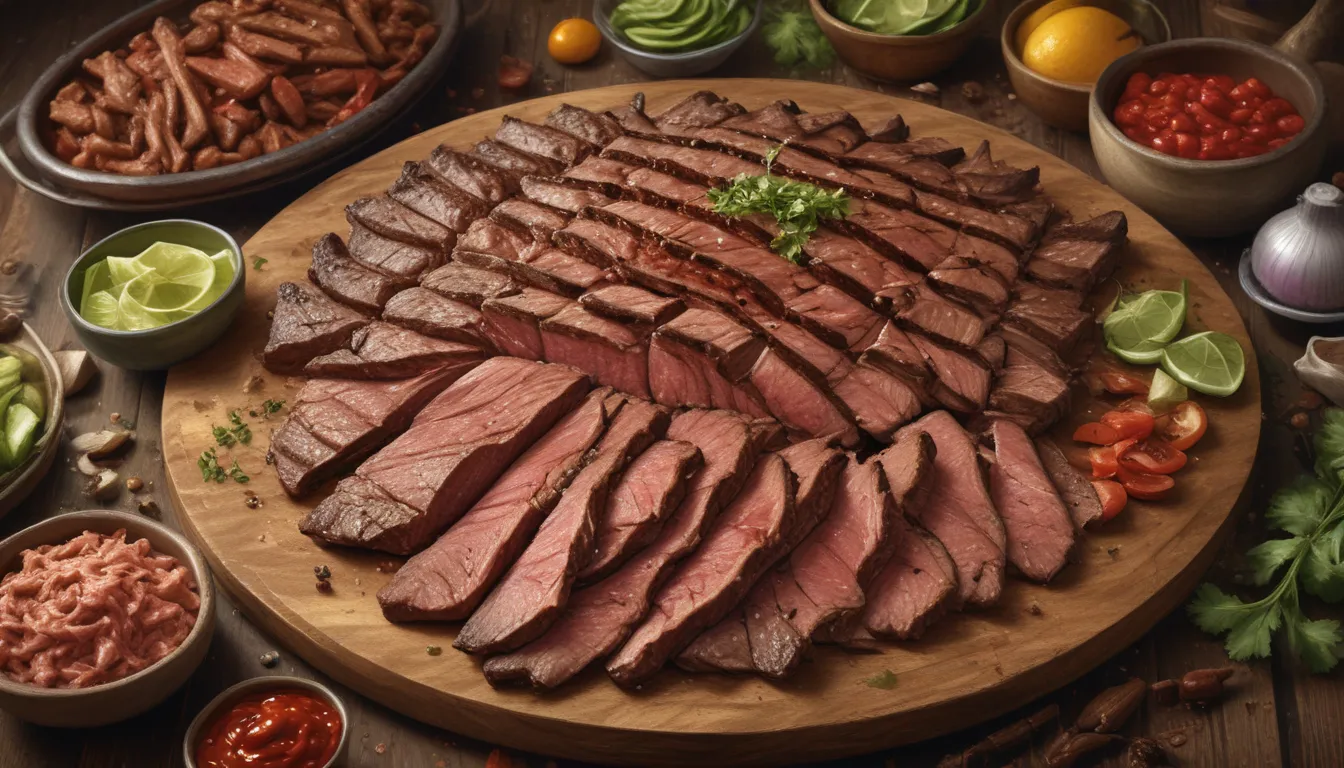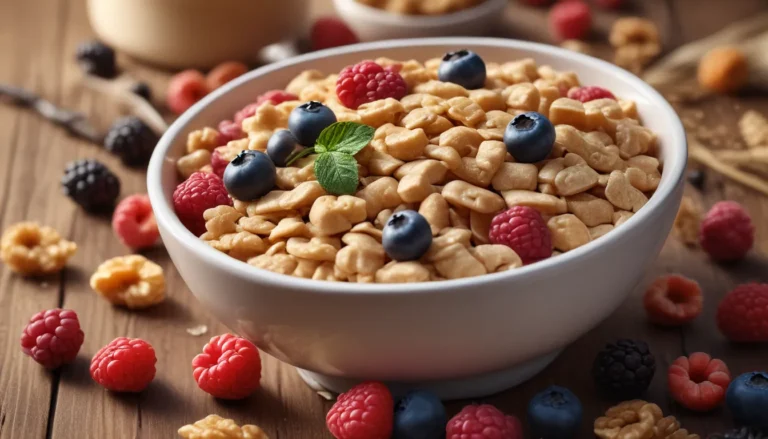The pictures in our articles might not always show exactly what the text is talking about. We use these images to make the article more interesting and eye-catching. They are there to add to the text, but not to replace it or show every detail.
Carne asada, a beloved Mexican dish, is a delicious and flavorful grilled beef that has captured the hearts of many food enthusiasts. If you're curious about the nutritional value of this mouthwatering meal, you've come to the right place. In this comprehensive guide, we will delve into 15 essential nutrition facts about carne asada, covering its calorie count, macronutrient composition, vitamins, and more. Let's embark on a journey to uncover the health benefits and considerations associated with this delectable dish.
Understanding the Nutrition of Carne Asada
Calorie Content
A typical serving of carne asada, weighing around 3 ounces (85 grams), contains approximately 207 calories. However, the calorie content can vary based on the cut of beef used and any additional ingredients or marinades.
Protein Powerhouse
Protein plays a crucial role in muscle growth and repair, and carne asada is an excellent source of protein. A 3-ounce (85-gram) portion contains approximately 24 grams of protein, making it a great option for meeting your daily protein needs.
Fat Facts
Carne asada is relatively lean when it comes to fat content, with a 3-ounce (85-gram) serving containing around 12 grams of fat. The fat content may fluctuate depending on the specific cut of beef and the cooking method employed.
Essential Vitamins
Carne asada is a good source of essential vitamins such as B12 and B6. Vitamin B12 is crucial for a healthy nervous system, while vitamin B6 is essential for brain development and function.
Iron Boost
Iron is an important mineral that aids in the production of red blood cells, which are responsible for carrying oxygen throughout the body. Carne asada provides a decent amount of iron, making it a beneficial choice for meeting your daily iron requirements.
Zinc Content
Zinc is an essential mineral that supports immune function and wound healing. Carne asada contains a notable amount of zinc, enhancing its overall nutritional value.
Sodium Considerations
While carne asada is flavorful, it's important to be mindful of its sodium content. Depending on the marinades and seasonings used, the sodium levels in carne asada can vary. Opting for low-sodium options can help maintain a balanced sodium intake.
Vitamin C Accompaniments
Carne asada is often served with accompaniments like salsa or guacamole, providing a dose of vitamin C. This vitamin supports immune function and aids in the absorption of iron from the beef.
Cholesterol Concerns
Carne asada contains cholesterol due to its beef content. However, research suggests that dietary cholesterol has a lesser impact on blood cholesterol levels compared to saturated and trans fats. Enjoy carne asada in moderation as part of a balanced diet.
Fiber Content
While carne asada is not a significant source of dietary fiber, pairing it with fiber-rich foods like grilled vegetables or whole-grain tortillas can help increase your fiber intake, promoting healthy digestion.
Micronutrients in Marinades
Marinades used to flavor carne asada can contain herbs and spices that introduce additional micronutrients to the dish, offering antioxidant properties and potential health benefits.
Lean Cuts of Beef
Opting for lean cuts of beef, such as sirloin or flank steak, for your carne asada can help reduce the saturated fat content. Trimming any visible fat before cooking can also contribute to a healthier overall dish.
Grilling and Nutrient Retention
Grilling carne asada imparts a delicious smoky flavor while retaining essential nutrients in the beef, making it a nutritious cooking method.
Balanced Meal Options
Pairing carne asada with colorful vegetables, whole grains, and legumes creates a well-rounded and nutritious meal, ensuring a diverse array of nutrients for a flavorful and healthy dining experience.
Achieving Balance with Carne Asada
Moderation is Key
While carne asada offers numerous nutritional benefits, moderation is essential. Enjoying this dish as part of a balanced diet, coupled with regular exercise and other healthy practices, is crucial for overall well-being.
Frequently Asked Questions (FAQs)
Can I include carne asada in my weight loss diet?
Moderation is key when incorporating carne asada into a weight-loss diet. Consider portion sizes and opt for lean cuts of beef for lower calorie and fat content.
Are there any alternatives to beef for carne asada?
If you prefer alternatives to beef, you can explore options like chicken, shrimp, or tofu as substitutes for carne asada, offering different flavors and nutritional benefits.
Is it necessary to marinate carne asada?
While marinating carne asada is not mandatory, it can enhance its flavor and tenderize the meat, resulting in a more delicious end product.
Can I enjoy carne asada with high blood pressure?
If you have high blood pressure, monitor your sodium intake and opt for low-sodium options when preparing carne asada. Pair it with vegetables and whole grains for a balanced meal.
Can I freeze leftover carne asada?
Yes, leftover carne asada can be frozen for later use. Ensure proper storage in an airtight container or wrapping before freezing, and thaw in the refrigerator when ready to consume.
Embrace the Nutritional Bounty of Carne Asada
In essence, carne asada offers a delightful combination of flavors while delivering essential nutritional benefits. Whether it's the protein power, vitamin richness, or mineral content, this Mexican dish is a wholesome addition to your diet. By making informed choices, such as selecting lean cuts of beef and incorporating fiber-rich foods, you can relish carne asada as part of a well-balanced and mindful eating plan. Remember, balance and moderation are the keys to savoring this flavorful dish while supporting your overall health and wellness.






